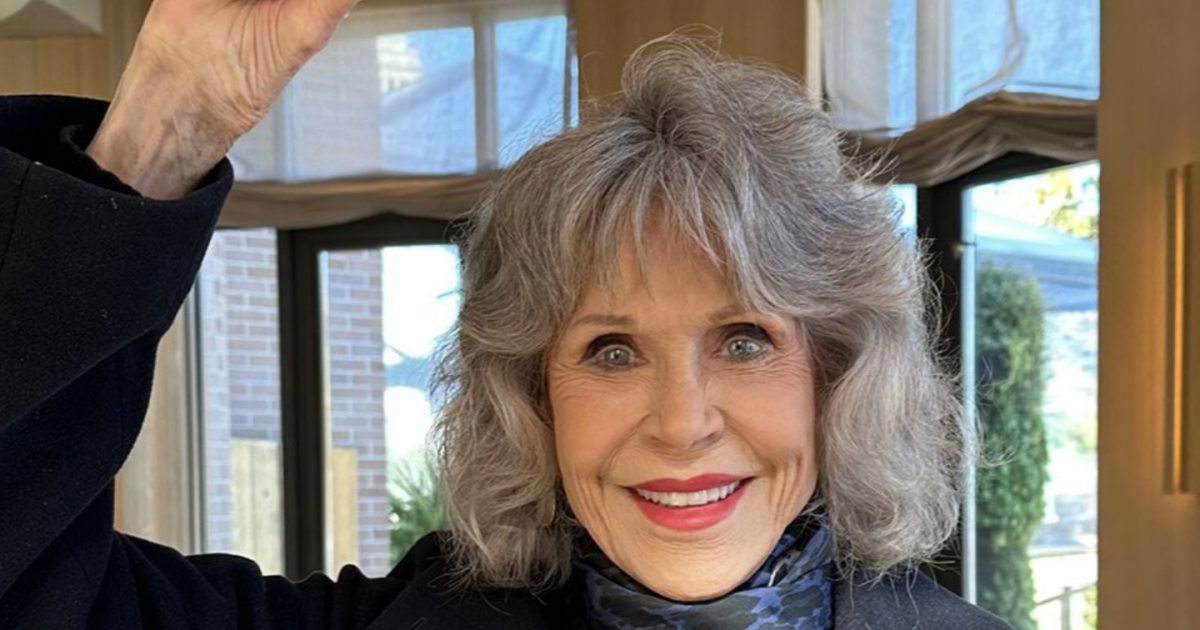An Update from Jane Fonda: Fearless and Free
- Legendary actor and activist Jane Fonda is candidly sharing many facets of her incredible life, including her fearless perspective on facing her 2022 lymphoma diagnosis, and the cancer survivor’s current mindset on aging.
- Lymphoma is a cancer of the immune system, which begins in a specific kind of white blood cell called a lymphocyte, located in the body’s lymphatic system. It is one of about 100 different types of blood cancers that affect nearly 200,000 Americans every year.
- Early signs of lymphoma can be sneaky, which is why it is typically diagnosed at an advanced stage, so watch out for symptoms such as swollen lymph nodes in your neck, armpit or groin, weight loss, tiredness, fevers, and a swollen belly, and if they linger for more than a couple weeks, be sure to get in to see your doctor.
The Barbarella star, 86, addressed these topics in a new interview this week with journalist Carole King on her Now What? podcast.
Read More“‘Why me’ seems such a ridiculous thing to think of. I mean, come on,” the Academy Award winner said. “The people who suffered in the world, ‘Why me?’ Why not me?”
“And I knew I had this lymphoma, but it was inactive for a long time. So I knew when I was in Italy and not feeling very well, and that I was pretty sure that the cancer had become inactive and I was right, it had.”
“But no, I didn’t even cry,” Fonda added. “I just said, ‘Okay, what do we do?’ ”
View this post on Instagram
Embracing Older Age
Though Fonda has come to terms with her older age, the fitness icon said she’s still “ready to live” if she has the chance, and she’s “grateful for that.”
Discussing her thoughts on prayer, she said she prays but doesn’t go to church, and does believe in the “power” of prayer. “Prayer and meditation, just answering questions, feeling not alone, feeling connected to everything, including nature, respect for nature. All these things come to you with prayer and meditation.”
RELATED: Anything That Comes, I’m Ready for It: How Faith Carried Sharon Spencer Through Cancer
In fact, when Fonda announced to fans that she was in remission for lymphoma, she wrote, “I thank all of you who prayed and sent good thoughts my way. I am confident that it played a role in the good news.”
View this post on Instagram
Reflections on Relationships and Gender Roles
Elsewhere in the podcast interview, Fonda also shared what she learned over the years from her relationships, specifically discussing her 10-year marriage to billionaire media mogul Ted Turner, whom she wed in 1991. Turner initially had a problem with Fonda being in the spotlight, but found steady ground after going to couples therapy.
“I learned that in a relationship, there are times when one person is the leader and in the spotlight, and that person has to be the best possible leader that they can, and there are some times when that person is the follower and they have to be the best possible follower that they can.”

The lifelong feminist discussed how women were “trained” and “brought up to be pleasers.”
“We want to be loved. Everybody wants to be loved. But at least a lot of the women I know, including myself, we thought in order to be loved, ‘I have to look a certain way. I have to be thin. I have to not be angry. I can’t be too ambitious.”
“This sort of thing is typical of women. And when I finally got to the point where I didn’t feel that I had to please the man I was with anymore, then I felt whole, I felt authentic. I was proud of myself. It took a lot of work for me to get there. It took years.”
Jane Fonda’s Other Cancers
In addition to lymphoma, Jane Fonda has also had breast cancer and skin cancer.
She revealed in 2010 that her doctors discovered a small, non-invasive tumor. Fonda underwent a procedure, and her representative declared her “cancer-free.” In 2016, Fonda had a mastectomy, which is the surgical removal of one or both breasts, right before her Golden Globe Awards appearance.
Then in 2018, while speaking to the TODAY show, Fonda addressed bandages on her face by explaining she had cancer taken away from her lip.
“Well, the world is falling apart, what’s a lip?” Fonda asked. “Yeah, they did (biopsy it.) I’m going to be fine, thanks.”
What is Lymphoma?
Lymphoma is a cancer of the immune system, which begins in a specific kind of white blood cell called a lymphocyte, located in the body’s lymphatic system. It is one of about 100 different types of blood cancers that affect nearly 200,000 Americans every year.
RELATED: Blood Cancer Comes in More than 100 Varieties — How They Differ & What They Have in Common
In cases of lymphoma, the lymphocytes multiply and build up in the lymph nodes and other tissues, making it more difficult for your immune system to launch an effective attack against invading germs. As a result, the body becomes more prone to infections and other illnesses.
Radiation for Non-Hodgkin Lymphoma: ‘It Is Not Painful,’ Says Dr. Chelsea Pinnix
The disease is broken up into two main categories: Hodgkin Lymphoma and non-Hodgkin Lymphoma.
Doctors make a determination by examining the white blood cells within the body. If they are unable to detect the Reed-Sternberg cell (a giant cell derived from B lymphocytes), then it is classified as non-Hodgkin. If the cells are present, then it is classified as Hodgkin.
The sneaky nature of symptoms, coupled with a lack of screening for lymphoma, results in many people getting diagnosed at an advanced stage. By that point, the cancer may have already spread throughout their body. Yet even at a late stage, the outlook isn’t as dire as many people might assume.
“The one thing that I always reassure people about when they are diagnosed with advanced stage lymphoma is that, unlike other cancers, where advanced stage is a death sentence, that’s certainly not the case for lymphoma,” Dr. Elise Chong, medical oncologist at Penn Medicine, told SurvivorNet in a previous interview.
Spotting the Symptoms
The first lymphoma symptoms can be so subtle that you might not even notice them. It may not be until you visit your doctor for a check-up that you discover there could be a problem.
“People say, ‘But I feel completely fine,’ and that’s very normal,” Dr. Chong says. If a lump is found, often “it’s only because either someone palpated a lymph node and felt some swelling in their neck or in their groin or under their arm.”
If you are at risk for this cancer because you had cancer or an organ transplant in the past, you have an autoimmune disease, or you have an infection such as HIV or Epstein-Barr, it may be worth watching out for the following symptoms:
- Swollen lymph nodes in your neck, armpits, or groin
- Weight loss
- Tiredness
- Fevers
- Swollen belly
But keep in mind that these are more likely to be symptoms of something far less serious, such as a run-of-the-mill infection.
There are also a group of symptoms doctors refer to as “B symptoms.” Those include a fever, night sweats, or weight loss. “If people are having any of these symptoms, it’s really important that they tell their physician early so that the proper testing can be done,” Dr. Chong adds.
Learn more about SurvivorNet's rigorous medical review process.


